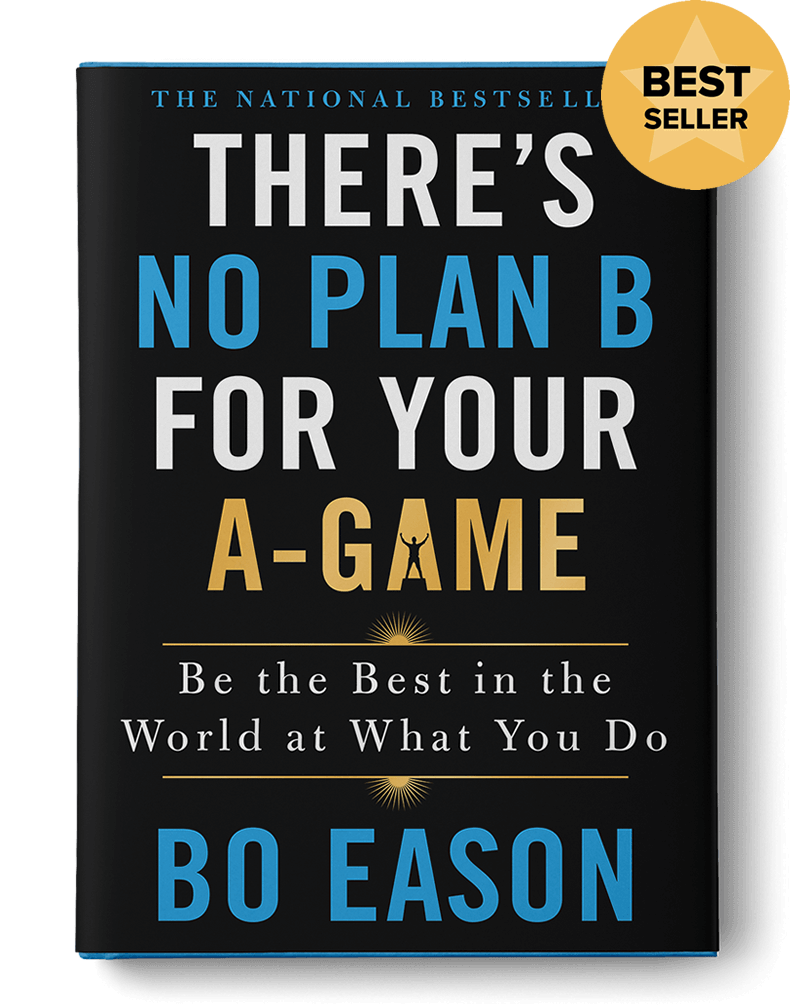Not long ago I sent you a survey asking you to ask me anything. The most frequently asked question had to do with the subject of stage fright. I was a little shocked just because I have a huge amount of stage fright but it’s such a part of my life now that I never really discuss it — it's just an everyday occurrence.
Usually I’m on stage or I’m in front of a camera or I’m training or coaching people and I always have stage fright. Or, one of my kids has a dance recital or a basketball game and I get nervous. I get worried about it, but it’s such a part of who I am now. I’m resolved to the fact that I’m never getting over it.
That’s the number one lesson here today is YOU with stage fright. The good news is this…you’re never getting over it. Now that may be the bad news too. Right? The good news is I just want you to resolve yourself to the fact that you’re never getting over it and congratulations on that.
The greatest performers I ever played with whether it’s in the NFL — and I think I played with eight Hall of Fame players — they are nervous before a big game. They are nervous before any game. They’re anxious. Some of them throw up. Some of them go to the bathroom a hundred times, me included. It’s a state of readiness. It’s nature's way of telling you that you are prepared to do something great. You are about to embark on something you’re supposed to do.
I also had a great performance coach named Roy London. He was my first acting coach, amazing guy. He used to say, because my hands would shake like crazy when I got on stage, that he loved that they did that. He would say, “Why do your hands shake?” And I go, “Because I’m really nervous and I want to do good.” Then he would say, “You need to replace the word ‘nervous' because I think you’re using the wrong term. You’re saying stage fright, you’re saying the word ‘nervous' when I think the actual emotion you are feeling is love.”
So replace the word ‘nervous' or ‘stage fright' with the word ‘love', because it is true. That’s really what I was feeling. I wanted to do well, I wanted to perform, I wanted to impact people — no different than you. That’s called love. That’s what you’re feeling, you want to do well.
I see this in speaking coaches all the time and acting coaches do this too, “Oh…you gotta get over that stage fright.” That’s just bad coaching. That’s horrible coaching because you’re not getting over it, for a lifetime. I don’t know anyone who’s been on stage as much as I am. Whether it’s a football field or a theater or another kind of stage like a boardroom or conference room, I don’t ever get over it. Before I started shooting this video, I was anxious. I was nervous. So I added some movement to my warmup and I got my body ready. I get some movement in to kind of let that love and let what you would call ‘stage fright' kind of embed into my molecules and then I just go.
Another tip, someone once taught me this, a guy named Larry Moss who’s a great great acting coach and director. He said this, “Your fear must be subservient to the message you’re delivering.” So he would say to me, “I don’t care how you feel necessarily. You might feel self doubt. You might feel anxious. You might feel nervous in front of an audience. Your intent to make impact and deliver the goods on that audience must supersede the way you feel.”
Think about that the next time you take the stage. The first thing you do after your foot hits the stage, you look out into the audience and find one person to connect to. You figure out what they need, and then you deliver the goods. When you’re that intentional, you don’t have time to be nervous. You don’t have time to think about what’s going on with you because you’re too busy serving them.
Another great example is quarterbacks. All of you’ve seen quarterbacks playing in the NFL. These guys have to stay very calm in the most trying situations. It may be snowing, the coach is freaking out, the crowd is booing them, the defense is trying to kill them, they might have a broken arm or finger, or a black eye. See how calm they remain. The next time you watch a game, these guys just stay calm. It’s not that they’re not nervous, it’s not that they don’t feel these emotions inside. It’s that they have a big job at hand. They have to deliver the goods, so the delivery of the goods supersedes the way they feel. Apply this the next time you perform.
I want to say one more thing about stage fright…it is the greatest rocket fuel you have. Don’t try to get rid of it. Don’t try to get around it. Don’t try to pretend you don’t have it. Use it. Take it on the stage with you. If your hands shake, so be it. If you sweat; I love a human being who sweats. Bring that rocket fuel, which you call stage fright, on stage with you. Don’t try to go out there without it. You’d be starting from a false premise to begin with if you’re disregarding the emotion and the feelings and the love you’re already feeling. Don’t push it aside and leave it off the stage. Bring it with you.
I promise if you do that, people will have the most difficult time looking away from you. Imagine what that would be like if your audience couldn’t look away because you’re a real human being with real nerves and real emotions right in front of them. Instead of starting from a false premise and going out there with a vibe that's like, “Hey, I’m very cool and comfortable out here.” You’re going to become very predictable if you’re like that and no one is going to pay attention to you
Bring that jet fuel with you. You’re lucky to have stage fright. Use it.

